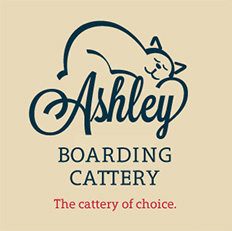Month: June, 2014
The Importance of Feeding your Cat a Well-Balanced Diet
It never ceases to amaze me the number of overweight cats we see coming through the cattery. What is worse, is that most owners are oblivious to the fact that their precious pet urgently needs to shed some kilos.
Since obesity can be associated with a number of health issues, including diabetes, urinary tract infections/diseases, joint and skin problems; it is important that pet owners take responsibility for the well-being and health of their cat right from day one. Having a little bit of understanding about your cat’s dietary behaviour and digestive requirements will certainly help you make the right decisions.
Feeding your cat a tailored and well-balanced diet will contribute considerably towards whether or not your cat remains healthy throughout its senior years, or you are lumbered with astronomical vet bills for consults and medications.
When choosing your cats diet, several factors need to be taken into account; breed, sex, age, physical condition, lifestyle and level of activity ie. Does your cat live inside or have access to the outdoors. A cat that lives indoors expends little energy and consumes fewer calories in order to maintain its body temperature. Obesity is far more common in inactive cats compared to those that spend a significant amount of their day outside.
Cats “snack” naturally and should preferably have several small meals a day. However, some cats are unable to regulate the amount of food they are eating, so food portions should be monitored to avoid obesity. Fresh drinking water should also be available at all times.
Cats do not have any digestive enzymes in their saliva, and their intestines are short, so they require food which is highly digestible. Signs of digestive problems include diarrhoea, flatulence, constipation and vomiting. Cats are happy eating the same completely balanced food every day. Chopping and changing your cat’s diet can cause digestive problems. If you need to change your cat’s diet, introduce the new food gradually.
When owners are admitting their cats to the cattery, we always ask about diet. What is the cat being feed at home? Are there any special dietary requirements? Ninety percent of the time, the answer is “no but he/she is an extremely fussy eater”.
We know that taste is not the most contributing factor as to whether or not your cat eats its dinner. Compared to a dog, which has 1700 taste buds on their tongue, cats only have around 500 and cannot taste sweet flavours. (Humans have 9000 taste buds).
Perhaps the word “fussy” is a too anthropomorphic term to use when talking about the food your cat will eat. Cats do not refuse to eat their food because they are fussy, they simply will not eat food unless it is palatable to them. All cats will have different levels of palatability, so what one cat will eat, does not necessarily mean another cat will eat the same thing. They will all have individual preferences.
The palatability of food for a cat is made up of these characteristics:
- Smell – cats will only eat food if the aroma is attractive to them
- Texture – the shape and composition of the kibble
- Ease of prehension (grasping by the mouth)
- Post ingestion feeling – each cat will interpret the sensation after digesting food differently
- Taste
Feed your cat the very best that you can afford and it will pay dividends later on. Remember, one in three cats are said to be overweight. Ashley Boarding Cattery is a retail outlet for Royal Canin, a world leader in the Pet Food Industry. Talk to our staff about a diet that would be beneficial for your cat. Although more expensive than the Supermarket brands, you need to feed far less of it and your cat will reap the benefits of enjoying a premium diet. We stock the full pet shop range including breed specific. We can also provide Royal Canin Dog food to order.
